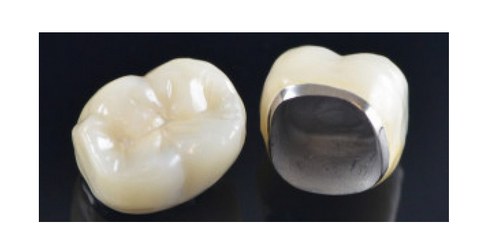You may have had a dental crown fitted in the past but what you may not know is whatever material they are made fr ..
Metal Fused Ceramic Dental Crowns
Introduction | Purpose | Ideal Patients | Types | Treatment Steps | Benefits | Advantages | Durability | Treatment Time | Cost | Risk & Complications | Disadvantages | Alternatives | Aftercare |
Fast facts

3500 to 7500
Treatment Longevity :
Long term
Treatment Duration : 3-5 Days

